Intro
Discover Rosuvastatin uses and benefits, a statin medication reducing cholesterol, triglycerides, and cardiovascular risks, promoting heart health and preventing strokes.
Rosuvastatin is a medication that has been widely used to treat high cholesterol and reduce the risk of cardiovascular disease. It belongs to a class of drugs known as statins, which work by inhibiting the production of cholesterol in the liver. With its ability to effectively lower cholesterol levels, rosuvastatin has become a popular choice among doctors and patients alike. In this article, we will delve into the uses and benefits of rosuvastatin, exploring its mechanisms, advantages, and potential side effects.
The importance of managing cholesterol levels cannot be overstated. High cholesterol can lead to the buildup of plaque in the arteries, increasing the risk of heart attacks, strokes, and other cardiovascular events. Rosuvastatin has been shown to be highly effective in reducing low-density lipoprotein (LDL) cholesterol, also known as "bad" cholesterol, while also increasing high-density lipoprotein (HDL) cholesterol, or "good" cholesterol. By taking rosuvastatin, individuals can significantly reduce their risk of developing cardiovascular disease and improve their overall health.
Rosuvastatin has been extensively studied, and its benefits have been well-documented. It has been shown to reduce the risk of major cardiovascular events, such as heart attacks and strokes, by up to 50%. Additionally, rosuvastatin has been found to be effective in reducing the risk of cardiovascular mortality, with studies suggesting that it can lower the risk of death from cardiovascular disease by up to 20%. With its impressive efficacy and relatively low risk of side effects, rosuvastatin has become a staple in the treatment of high cholesterol and cardiovascular disease.
Rosuvastatin Mechanism of Action

Rosuvastatin Benefits
The benefits of rosuvastatin are numerous and well-documented. Some of the most significant advantages of taking rosuvastatin include: * Reduced risk of major cardiovascular events, such as heart attacks and strokes * Lower risk of cardiovascular mortality * Effective reduction of LDL cholesterol levels * Increase in HDL cholesterol levels * Improvement in overall cardiovascular healthRosuvastatin Uses
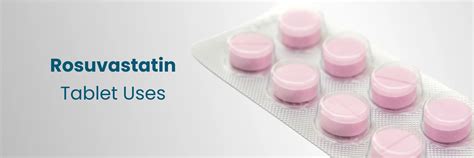
Rosuvastatin Dosage
The dosage of rosuvastatin varies depending on the individual and the specific condition being treated. Typical dosages range from 5-40 mg per day, taken orally once a day. It is essential to follow the dosage instructions provided by your doctor, as taking too much or too little of the medication can affect its efficacy and increase the risk of side effects.Rosuvastatin Side Effects
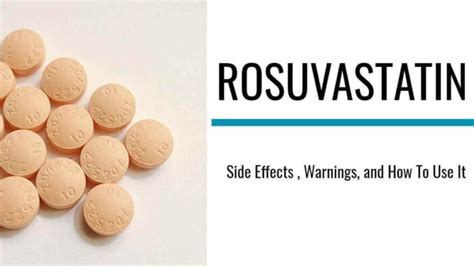
It is essential to discuss any concerns or side effects with your doctor, as they can help you manage any issues and adjust your dosage or treatment plan as needed.
Rosuvastatin Interactions
Rosuvastatin can interact with other medications, including: * Warfarin * Cyclosporine * Gemfibrozil * Fenofibrate * ErythromycinIt is crucial to inform your doctor about any medications you are taking, including over-the-counter supplements and vitamins, to minimize the risk of interactions and ensure safe treatment.
Rosuvastatin Contraindications
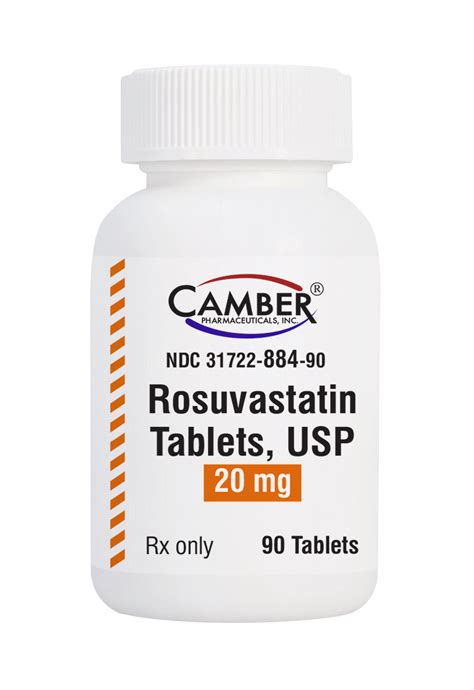
It is essential to discuss any concerns or medical conditions with your doctor before starting treatment with rosuvastatin.
Rosuvastatin Warnings
Rosuvastatin may cause an increase in liver enzymes, which can be a sign of liver damage. Regular monitoring of liver function is essential to minimize the risk of liver damage. Additionally, rosuvastatin may increase the risk of muscle damage, particularly when taken in combination with other medications.Rosuvastatin Overdose
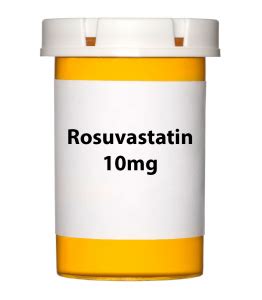
Treatment for an overdose typically involves supportive care, such as monitoring of vital signs and administration of activated charcoal to help absorb the medication.
Rosuvastatin Storage
Rosuvastatin should be stored at room temperature, away from moisture and light. It is essential to keep the medication out of reach of children and pets to minimize the risk of accidental ingestion.Rosuvastatin Disposal
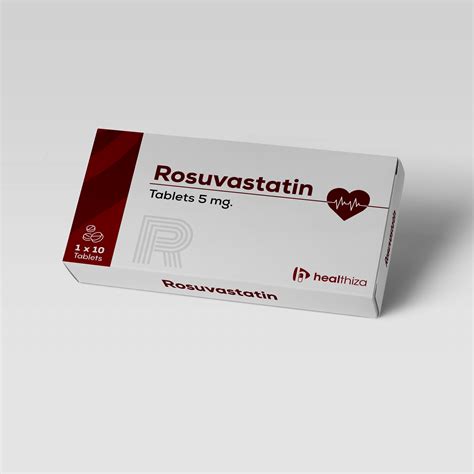
Rosuvastatin Conclusion and Future Directions
In conclusion, rosuvastatin is a highly effective medication for the treatment of high cholesterol and reduction of cardiovascular risk. Its benefits have been well-documented, and it has become a staple in the treatment of cardiovascular disease. As research continues to evolve, it is likely that new uses and benefits of rosuvastatin will be discovered, further solidifying its place as a leading medication in the field of cardiovascular health.We invite you to share your thoughts and experiences with rosuvastatin in the comments below. Have you taken rosuvastatin to manage your cholesterol levels? What benefits or side effects have you experienced? Your input can help others make informed decisions about their treatment options.
What is rosuvastatin used for?
+Rosuvastatin is used to treat high cholesterol and reduce the risk of cardiovascular disease.
What are the benefits of taking rosuvastatin?
+The benefits of taking rosuvastatin include reduced risk of major cardiovascular events, lower risk of cardiovascular mortality, and effective reduction of LDL cholesterol levels.
What are the common side effects of rosuvastatin?
+Common side effects of rosuvastatin include headache, muscle pain, nausea, dizziness, and increased liver enzymes.
